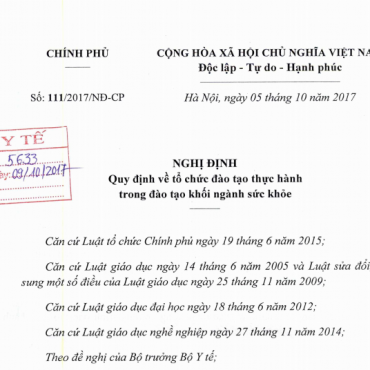Liên hệ tuyển sinh
Hợp tác Quốc tế
T-cells from common colds can provide protection against COVID-19 - study
Alistair Smout
Mon, January 10, 2022, 5:12 AM
By Alistair Smout
LONDON (Reuters) - High levels of T-cells from common cold coronaviruses can provide protection against COVID-19, an Imperial College London study published on Monday has found, which could inform approaches for second-generation vaccines.
Immunity against COVID-19 is a complex picture, and while there is evidence of waning antibody levels six months after vaccination, T-cells are also believed to play a vital role in providing protection.
The study, which began in September 2020, looked at levels of cross-reactive T-cells generated by previous common colds in 52 household contacts of positive COVID-19 cases shortly after exposure, to see if they went on to develop infection.
It found that the 26 who did not develop infection had significantly higher levels of those T-cells than people who did get infected. Imperial did not say how long protection from the T-cells would last.
"We found that high levels of pre-existing T cells, created by the body when infected with other human coronaviruses like the common cold, can protect against COVID-19 infection," study author Dr Rhia Kundu said.
The authors of the study, published in Nature Communications, said that the internal proteins of the SARS-CoV-2 virus which are targeted by the T-cells could offer an alternative target for vaccine makers.
Current COVID-19 vaccines target the spike protein, which mutates regularly, creating variants such as Omicron which lessen the efficacy of vaccines against symptomatic infection.
"In contrast, the internal proteins targeted by the protective T-cells we identified mutate much less," Professor Ajit Lalvani, co-author of the study, said.
"Consequently, they are highly conserved between the various SARS-CoV-2 variants, including Omicron. New vaccines that include these conserved, internal proteins would therefore induce broadly protective T cell responses that should protect against current and future SARS-CoV-2 variants."
(Reporting by Alistair Smout; editing by Philippa Fletcher)
Our goal is to create a safe and engaging place for users to connect over interests and passions. In order to improve our community experience, we are temporarily suspending article commenting
Common cold might have given Britons protection from Covid before pandemic began
Sarah Knapton
Mon, January 10, 2022, 3:45 AM
Illustration of antibodies (y-shaped) responding to an infection with the new coronavirus SARS-CoV-2. - Science Photo Library RF
Large numbers of Britons were already protected from coronavirus before the pandemic began because of previous exposure to common colds, a groundbreaking new study suggests.
Researchers at Imperial College found that half of people living with an infected person in the second wave - before vaccines were available - were carrying high levels of memory T-cells from colds that may have stopped them picking up the virus.
The study helps explain why some people never get infected, and also sheds light on why older people - who are less likely to pick up colds - are more susceptible, while children - who suffer many colds every year - are more protected.
The T-cells target proteins found deep within the core of many coronaviruses and rarely change even when the virus mutates on the outside.
The researchers believe that these core proteins could be used to create a universal vaccine that would fight all new variants. Current vaccines are based on the spike protein which sits on the outside of cells, and which is prone to mutating.
Prof Ajit Lalvani, senior author of the study and director of the NIHR Respiratory Infections Health Protection Research Unit at Imperial, told The Telegraph that the protective T-cells were likely to be present in a large number of people.
“It’s a good proportion of the population, a third in our study,” he said: “It explains the good outcomes or resistance to infection for some people."
He added: “It’s been a fundamental question since the start of the pandemic, why is there such a wide spectrum of outcomes in a naive population, some people in intensive care and dying and others not even getting infected?
“So it was postulated that exposure to common colds may leave memory T-cells that would protect people even though they’ve never seen Sars-CoV-2."
The immunity enigma
Early on in the pandemic, studies showed that some people carried immune cells that could recognise Covid-19 even though they had never been infected.
Story continues
Our goal is to create a safe and engaging place for users to connect over interests and passions. In order to improve our community experience, we are temporarily suspending article commenting
Immune system T-cells can fight omicron COVID-19 variant, study suggests
Julia Musto
Wed, January 5, 2022, 3:13 PM
Immune system T-cell responses remain broadly robust against the omicron variant of coronavirus, according to researchers.
In a study published in the journal Viruses, a team from the Hong Kong University of Science and Technology (HKUST) and the University of Melbourne analyzed more than 1,500 fragments of SARS-CoV'2's viral proteins – or epitopes – that have been recognized by T-cells in recovered COVID-19 patients or after vaccination.
"Overall, given that most of the experimental T-cell epitopes known to be targeted in vaccinated and/or previously infected individuals [collectively, accounting for (about) 60% of the global population as of 25 December 2021] are unaffected by omicron mutations, our preliminary analysis suggests that the effectiveness of preexisting T-cell immunity will remain intact," the group said.
"T-cell responses alone, however, do not block infection and therefore do not prevent transmission. Thus, while the number of infections may rise considerably as a consequence of omicron’s ability to evade antibodies, robust T-cell immunity provides hope that, similar to other [variants of concern], the level of protection against severe disease would remain high."
However, the authors noted that while data is suggestive of a reduced risk of hospitalization and death from the variant of concern, the degree to which preexisting T-cell immunity is contributing to those results "still needs to be clearly established."
"Despite being a preliminary study, we believe this is positive news. Even if omicron, or some other variant for that matter, can potentially escape antibodies, a robust T-cell response can still be expected to offer protection and help to prevent significant illness," University of Melbourne professor Matthew McKay, who co-led the research, said in a news release.
Các tin khác
- One in 10 People Who Had Omicron Got Long COVID: Study ( 20:25 - 01/06/2023 )
- Physical Medicine Academy Issues Guidance on Long COVID Neurologic Symptoms ( 09:58 - 19/05/2023 )
- SARS-CoV-2 đi qua nhau thai và lây nhiễm não của hai trẻ sơ sinh: “Đây là trường hợp đầu tiên” ( 16:55 - 10/04/2023 )
- Breakthrough' Study: Diabetes Drug Helps Prevent Long COVID ( 08:55 - 15/03/2023 )
- BCG vaccine (thuốc chủng ngừa bệnh lao) & SARS-CoV 2 (covid-19) infection ( 10:08 - 27/10/2022 )
- Đại dịch COVID-19 đã kết thúc? ( 09:11 - 22/09/2022 )
- Dị hình giới tính ở COVID-19: Ý nghĩa tiềm năng về lâm sàng và sức khỏe cộng đồng ( 09:22 - 19/03/2022 )
- COVID-19 Update ( 21:00 - 06/03/2022 )
- Một người có thể tái mắc Covid-19 bao nhiêu lần ?? ( 20:25 - 06/03/2022 )
- Coronavirus Can Spread to Heart, Brain Days After Infection ( 07:56 - 30/12/2021 )














